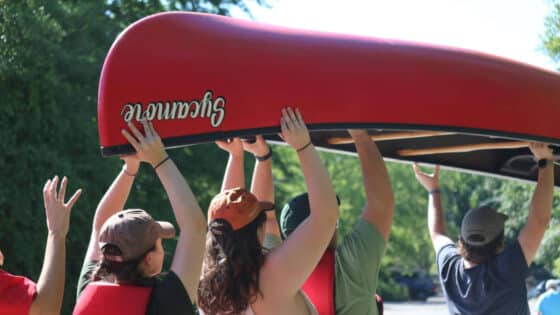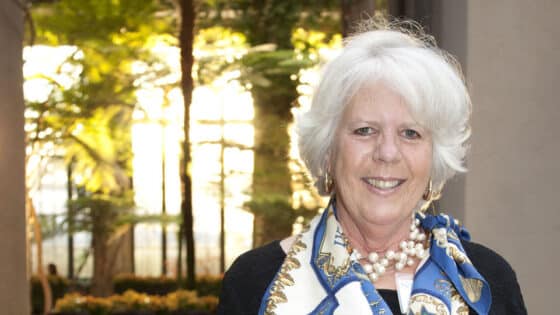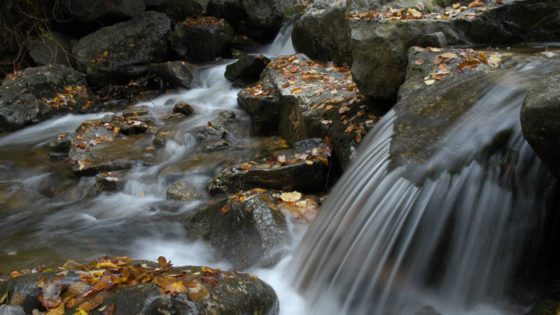As Stroud Water Research Center’s new watershed education specialist, Kathryn Metzker has come full circle on her education and career journey. She first visited the east branch of White Clay Creek with her school classmates when she was 12.
“Twenty years later, with more education and life experiences, I’m delighted to be back in a professional capacity working with diverse colleagues and a mobile lab that takes lessons learned from streams to new audiences,” she says.

In between, Metzker earned a bachelor’s in ecosystem science and policy, as well as anthropology, a master’s in geography, and traveled throughout the United States and the world working toward social and environmental justice.
She taught English, math, and reading in rural Ghana, sustainable farming in Hawai’i and the Galapagos Islands, and environmental security and anthropological field methods in the Dominican Republic. Along the way, she also led education and community science projects and supported research.
One of her most profound experiences was seeing firsthand how precious freshwater resources are while working in the Galapagos. An estuary near Isabela Island’s only coastal freshwater spring provides one of only a few sources of fresh water on the island.

Metzker says, “It is a profoundly beautiful place of rich biodiversity, where baby sharks and fish find sanctuary among the mangrove roots, hundreds of birds find meals in the low surf and one can stand in the cold water. The island’s geography as a bounded system accentuates the need for frugality and care for the watershed. It drove home the message that what we do with the land and water directly impacts everyone and everything around us.”


Her time on Isabela Island also taught her to think on her feet in a moment of crisis. When the pandemic hit, she and her team had to evacuate 25 people, including study abroad students and volunteers, in 48 hours.
She explains, “Not just off the island, but back to the Ecuadorian mainland and home countries before the borders closed. It challenged me as an educator, coordinator, and scientist to make decisions that put the safety and well-being of my students at the forefront.”
Now she looks forward to making a positive impact on communities and individuals in and around White Clay Creek and in watersheds around the world. In her first month on staff, she has already taught students at a local high school, canoed with a group of ninth graders at French Creek State Park, and shared water activities with teachers in the Seneca Nation in New York. Soon, she hopes to put her Spanish and Hindi language skills to use as she shares knowledge and stewardship of fresh water.
In her free time, she enjoys hiking, gardening, listening to audiobooks, and canoeing with her dog, Pippin.




